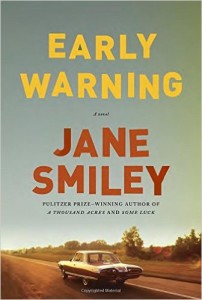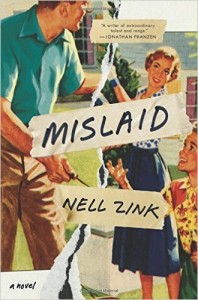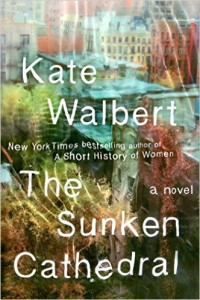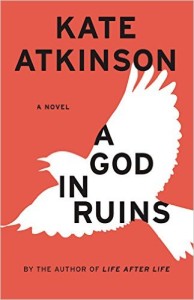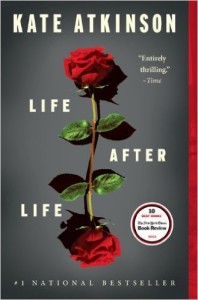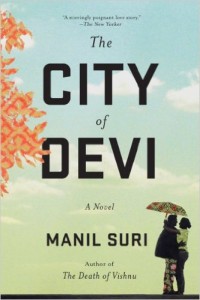Welcome to His Brother’s Keeper, a fictional mystery series set in 2000, in New York. I’ve decided to periodically lend my blog to a friend, Eva Hirschel. Eva doesn’t have a social media presence but she does have a mystery that she wanted to publish serially on-line, so I’m giving her a hand. (If you’re just tuning in now, I suggest that you start at the beginning). Here is Part I, Chapter 11. Enjoy!
Chapter Eleven
 The synagogue was a proud, old building, erected during what must have been a boom time in Altoona’s Jewish history. It was designed in the Moorish style that was once popular for synagogues. Like many other congregations in Western Pennsylvania, it had seen better times. Leaving Simon and the kids chasing each other through the piles of crunchy leaves on the synagogue lawn, I walked up the steps leading to a row of heavy carved wooden doors. Once inside, I looked around. Photographs of congregants at a variety of activities lined one wall. On the other wall were framed photographs of every confirmation class, going back to 1911. The contrast between the old sepia-toned photographs and newer color photographs told the story of change. In the earlier photographs, the girls wore long, white, ruffled dresses and demurely held flowers in their arms. The bareheaded boys wore dark suits. The color photographs reflected the evolution of both the congregation and Judaism—both the boys and girls wore tallitot and kippot, and they held Torah scrolls in their arms instead of flowers. There were also fewer students in the more recent photographs. In the 1911 photograph there were 12 students, in 1935 there were 23, in 1970 there were seven, and in 1999 there were three. The entire history of the Jewish community in Altoona could be read in these photographs. The Jewish community had grown up around the railroad industry. Jews had come to the area as peddlers catering to the needs of the local workers. Some of the peddlers had stayed and established roots, opening dry goods stores and groceries. But what was once a vibrant, flourishing community had waned with the end of the Pennsylvania Railroad Company’s reign. Young people left the area for big cities and opportunities elsewhere. Only a proud fraction remained.
The synagogue was a proud, old building, erected during what must have been a boom time in Altoona’s Jewish history. It was designed in the Moorish style that was once popular for synagogues. Like many other congregations in Western Pennsylvania, it had seen better times. Leaving Simon and the kids chasing each other through the piles of crunchy leaves on the synagogue lawn, I walked up the steps leading to a row of heavy carved wooden doors. Once inside, I looked around. Photographs of congregants at a variety of activities lined one wall. On the other wall were framed photographs of every confirmation class, going back to 1911. The contrast between the old sepia-toned photographs and newer color photographs told the story of change. In the earlier photographs, the girls wore long, white, ruffled dresses and demurely held flowers in their arms. The bareheaded boys wore dark suits. The color photographs reflected the evolution of both the congregation and Judaism—both the boys and girls wore tallitot and kippot, and they held Torah scrolls in their arms instead of flowers. There were also fewer students in the more recent photographs. In the 1911 photograph there were 12 students, in 1935 there were 23, in 1970 there were seven, and in 1999 there were three. The entire history of the Jewish community in Altoona could be read in these photographs. The Jewish community had grown up around the railroad industry. Jews had come to the area as peddlers catering to the needs of the local workers. Some of the peddlers had stayed and established roots, opening dry goods stores and groceries. But what was once a vibrant, flourishing community had waned with the end of the Pennsylvania Railroad Company’s reign. Young people left the area for big cities and opportunities elsewhere. Only a proud fraction remained.
Looking for the rabbi’s study, I peeked into a room that turned out to be the sanctuary. It was a majestic space in the classical style,, with a domed ceiling painted sky-blue and an organ and a choir balcony above the bima. Though the room could easily hold three hundred people I wondered if even thirty showed up for weekly services. Closing the heavy door behind me, I wandered down the hallway looking for the rabbi’s study.
Around the bend in the hallway I saw a door marked “Rabbi Bergman.” I approached and knocked lightly.
A slightly built man in his early forties opened the door. He was good-looking in an average sort of way, with a neatly trimmed dark beard and mustache. On his head sat a blue and white embroidered kippa; his suit was an acceptably serious dark blue of unremarkable cut. His look just screamed “RABBI;” he looked like about ten other of Leah’s classmates I’d had occasion to meet, and nothing about his nondescript physical appearance matched the extraordinarily deep and textured voice I had heard on the phone.
Introducing himself, he shook my hand and welcomed me in to his study. The study was a large, white room overflowing with books. Glass-front bookshelves covered the walls of the room up to shoulder-height, broken only by two windows across from the desk. Above the bookshelves, at evenly spaced intervals around the room, hung various items, like Rabbi Bergman ’s diplomas and his s’micha, or rabbinic ordination certificate. The only bit of color, other than an occasional brightly colored book jacket, was a reproduction of a Chagall painting. The tops of the bookshelves were piled with books, as was the desk, the two chairs in front of the desk, and a coffee table in front of a pale gray couch. There were several more piles of books on the floor.
Rabbi Bergman motioned for me to sit on the couch and, moving away a pile of books, seated himself on a chair. “Sorry about the mess,” he said, smiling sheepishly. “It’s just, well, no excuse. I like books.”
“No problem,” I said. “I’m so glad you made time to talk to me.”
“Not a lot of time, but it’s my pleasure. Like I said on the phone, I don’t know how I can help you, but I’ll try. How is my colleague Rabbi Brown?”
“She’s fine,” I answered, “and sends her regards.”
“We were chevruta partners in a Talmud study session at a conference a few years ago. She’s got quite a mind.”
“That she does,” I said, already tired of the chitchat. “She’s pretty amazing.”
Before I could decide how to steer the conversation around to my topic of interest, Rabbi Bergman said, “So what can I tell you about Jack Gelberman that would be helpful?”
“Well, Rabbi,” I began, and he quickly cut me off.
“Please, call me Steve.” He had said that over the phone. Still, it felt strange, even if he was a friend of Leah’s. A rabbi was a rabbi, after all.
“I’m trying to get a sense of him, of his family, of who he is, where he came from. I don’t really know specifically what I’m looking for. This kind of thing is very tricky, you don’t what you’re looking for until you find it.”
He nodded. “Okay. Well, let’s see. He wasn’t a very active member. Kept to himself most of the time. I always got the feeling that he joined more out of obligation than commitment. I had the impression that he came from a much more traditional background, but had rejected it or left it behind. It seemed like he was conflicted. In other words, that joining this synagogue was an uneasy compromise between what he had known at another point in his life, and doing nothing. Maybe he joined for his wife’s sake, or for his children’s, I don’t know. But he never gave and he never took. Never got involved in any thing. When I first got here as a young, green rabbi, I was disappointed, because I could tell that he knew a lot, I could tell that as a child he was given a solid Torah education, but he wasn’t willing to mentor or teach or share any of that knowledge, not even to chant Torah occasionally, or work with a bar mitzvah student, nothing. In a small place like this, without a lot of resources around, I tend to count on knowledgeable older congregants. Our children’s education is a group effort here.”
I was writing away furiously in my notebook, and looked up when he stopped talking.
He seemed to be considering the direction he wanted this conversation to take. “Look,” he began, “I can’t disclose any thing personal. And in any case, I was only here a few years before he retired and moved away. He never came to me except when his wife died, and even then you could hardly call our conversation personal. But there are two things that stand out when I stop to think about him, and this might help you. I think it’s okay for me to talk about them, because I’m just giving you my impressions, not disclosing anything.”
I nodded encouragingly.
“I knew he was a survivor, but he wasn’t like the other survivors. I mean, not that there’s one way to be a survivor, but even so, he seemed different. He never wanted to participate in any Holocaust observances, any memorials. He never came to Yizkor, and had no yahrzeits listed on our congregational list. Even the survivors who did not talk publicly about their experiences mourned their dead. He never did, at least not within the community. What he did privately, I don’t know.
“But two things happened that, at the time, made me really stop and wonder about him. The first was when we were doing a congregational Shabbaton, a special Shabbat, on Jewish life in Poland before the Holocaust. We had a scholar-in-residence come in from YIVO in New York, and we had spent a whole Shabbat on this topic. Everything was connected, the sermon, the songs we sang at services, and then all kinds of activities. It was a wonderful learning experience for the congregation. Knowing that he was a survivor and probably from Poland, I called him and asked him if he would lead one of the discussions on Shabbat afternoon, before Havdalah. It was our next-to-last session, and it was going to be on the destruction of Eastern European, and especially Polish, Chasidism, the end of all those dynasties. I thought he might know something about it, and I had plenty of readings to recommend, in case he didn’t know that much. Being so new and eager, I thought maybe all he needed was a personal invitation to get more involved in the congregation, and that this would be the perfect hook.”
“And how did he respond?” I asked.
“His response was that it wasn’t important. That what happened had happened and we should let the dead stay dead. But what was really weird was that he got very angry about it, and this was someone who was as mild-mannered and even-tempered as they come. He actually raised his voice at me, told me I didn’t know what I was talking about, and said, ‘Who do you think I am?!’ Well, I didn’t quite know how to respond to that, and so I just apologized and moved on. It bothered me for some time afterwards because I wasn’t sure what I had done wrong. But what do I know about being a survivor? I chalked it up to my naiveté, which, granted, was considerable. But now you’re saying he may in fact have come from significant Chasidic lineage.”
“It seems like he didn’t want anyone to know.”
“No, and I don’t think anyone did. It didn’t seem like he was someone with a lot of friends. Acquaintances, yes, colleagues down at the high school, but not friends. He was a loner, except for his family. And that brings me to the other story. His wife, Judith, died fairly close to the time he moved to Florida. She had been sick a while, apparently, but no one knew. Well, I didn’t know, and usually if someone knows, they let me know. When she died he called me from the hospital, very formal, and asked me to do the funeral. Of course I said I would. I asked to come over to the house that night to talk to the family and go over arrangements.”
“And what happened?”
“He said no, it wasn’t necessary. Actually, I said funeral, but he didn’t want a funeral–no funeral, no eulogy, just a graveside burial. He said he wasn’t going to sit shiva, and didn’t need for me to arrange a minyan to come to his house for the week. Nothing. I’m not really sure why he even wanted me at the graveside. Didn’t need any help, not a thing. Usually when there’s a death in a congregant’s family, I spend a lot of time with them going over Jewish death and mourning rituals, talking to them, giving emotional support and arranging for community support, even when it’s a congregant I barely know. But no, he didn’t want anything from me. I asked him if he was sure, and he said, ‘The dead are dead. There’s no need for making a production out of it. She’s gone. It’s over. I don’t need a lot of pious nonsense.’”
“He sounds bitter.”
“But that’s what so’s weird. He wasn’t, usually. I’d heard that his students at the high school loved him, he was quiet and reserved but at the same time so warm to people. People felt this immediate comfort in his presence, even I did outside of these two situations, like he wasn’t going to judge you but just accept you. He had this intense way of looking at you that just make you feel safe. It’s a strange thing to say, I know. But it was a one-way kind of thing. He didn’t open up to people, but they would open up to him.”
“And what happened at the burial?”
“He was mostly silent. He said the Kaddish, but nothing else. He told me beforehand that he wouldn’t shovel dirt on the coffin. He said there was enough dirt covering Jewish bodies to last an eternity. But his children did it, and he didn’t stop them. When it was over and I was going to my car, he walked over and quietly thanked me. He said that it was the first funeral he’d been to, the first time he been able to properly bury someone he loved, and that he really appreciated my help. Then he turned and went back to his family. I didn’t really know what to do, since I felt I had barely done anything, hadn’t used my rabbi’s toolkit, so to speak. But apparently it was what he wanted.”
“Humm,” I said, chewing thoughtfully on my pen. “Did you do any follow-up after that?”
“Well, actually, that was strange too. I called a few days later, just to check in and see how he was doing. That’s a normal thing for me to do, just doing-my-job sort of thing. His son answered the phone and told me that his father couldn’t come to the phone because he was davening ma’ariv, the evening service. Remember, he had told me he wasn’t going to be sitting shiva, he wasn’t doing any mourning rituals, he didn’t want a minyan to come pray with him. But there he was, davening alone. It was so sad, and touching at the same time. To have such an intense need for privacy, yet also clearly the need for comfort from the tradition. I asked if I could come the next day to daven with him, and his son said no, it wasn’t necessary. Very polite, but no, my presence wasn’t necessary.”
“And what about the son? Can you tell me anything about the family?”
“Not much. I know he has a daughter, but she left the area long before I came. I only saw her at the graveside. Nathan, the son, was a member here, but like his father, not involved. His kids never were in the school here; if they had been I would surely have known them better. Anyway, that’s another story, nothing to do with the father, but about Nathan himself. I can’t say more about without breaking confidentiality. And they moved fairly soon after that. So I don’t really know them.”
“Well, this has been extremely helpful. I appreciate it.”
“Don’t mention it. It’s a nice thing for the granddaughter to do for him, though it seems like there are of ghosts Jack might not want disturbed. Do you think there’s really a chance he came from an important Chasidic background?”
“I’m getting more and more convinced, that’s for sure. But I still have a lot of research to do, and many books to read. I met with Rabbi Joel Springer, and he gave me a lot of homework to do.”
He laughed. “Well, you’ll certainly gain an education doing this, if nothing else. He’s a great teacher. But you know, it’s funny. In rabbinic school, in the classes with Rabbi Springer, we study all this Chasidic wisdom, and Chasidic Torah commentary. It’s great stuff, and makes for great sermons. But it’s completely divorced from modern day Chasidism. I mean, you live in Brooklyn. Those people are nuts.”
“You mean one particular group, or all of them?”
“Yeah, they’re all a little nuts. But Chabad, Lubavich, whatever we call them, they’re really crazy. They’ve got one foot outside of the border of Judaism as it is, and they’re very close to stepping out all together. I have colleagues who don’t even consider them Jews anymore, with their messianic nonsense. There’s a joke circulating now that goes, ‘What’s the religion that closest to Judaism?’ ‘Chabad.’”
“I don’t know that much about it, only that they thought that their rebbe was the messiah, and then he died.”
“Yeah, surprise! I know it’s only one group within the Lubavich camp, but still, they’re nuts. Some say it’s a power play, I don’t know. But meanwhile, there’s no heir, and they act like he’s still alive, running the show. They keep waiting for him to rise from the dead. Well, doesn’t that sound like some other religion we know? It’s just crazy. They took out a full-page ad in the New York Times declaring him Melech Ha-Moshiach, the Messiah King of the Jews. I’m sure you saw, there were billboards all over places like New York, Los Angeles and Tel Aviv. They walked around with beepers, waiting to get the call the he was coming. I mean, is that Judaism? Come on. Now they keep vigil at his grave, waiting. They have huge get-togethers, where they rent stadiums, and they show a video montage of him, without even any voice-over. They dance and sing and pray as he looks out over them from the screens above. This is idol worship. This is nuts. This isn’t Judaism.”
“But wasn’t Chasidism always somewhat messianic?”
“Yes, sure, but in the abstract. It’s one thing to hope for a better world, and to even think that maybe joyful prayer and keeping the commandments will hasten that day, and it’s another thing entirely to have decided that the rebbe, who by that time had had a stroke and couldn’t talk, was actually the Messiah. I just don’t get it. So I can study Chasidic teaching all day long, and love it, but this stuff happening today, it’s totally foreign to me.”
He got up and went over to one of the piles of books he had moved off the chair. He returned, holding a thick magazine in his hand. “I mean, look at this. Somehow I got on their mailing list, don’t ask me how. Every week I get this publication, MiBeit HaMashiach, ‘From the House of the Messiah.’ Can you believe this?” On the cover was a picture of Schneerson, the late Lubavich rebbe. His was seated at a table, his face was turned to the camera and smiling munificently. Behind him was a throng of men in beards, black suits and white shirts. “I mean, this is this week’s edition. The man died what, five years ago? But every week this publication comes out, and every week it’s got his picture on the cover, and every week it analyses old sermons or speeches he gave to show that he really is the messiah and that he’s coming back. It’s got all kinds of things in here about how to get prepared and how to do more mitzvos. This is totally crazy stuff. And they say that Reform Judaism has crossed over the line of no return? Come on. We may have women rabbis and same sex marriages and drive on Shabbat, but we have not yet proclaimed that one of our deceased rabbis is the messiah and will rise from the dead.”
There was a knock at the door and a woman stuck her head in. “Oh, excuse me, Rabbi. We’re setting up the sanctuary and I just need to take the Kiddush cup. Sorry to interrupt.”
“That’s okay.” He got up, stretched, and walked over to one of the bookshelves. From behind a stack of books he extricated a large, ancient-looking silver Kiddush cup and handed it to the woman. The design of the cup was crude, and yet strangely beautiful, with simple vines and leaves spreading upwards from the thick base. “Here you go. I’ll be out shortly.” He turned back to me and said, “Sorry for the rant. Guess I got a little carried away.”
“No problem. That’s a beautiful Kiddush cup. It looked very old.”
He was already taking a robe off a hanger behind the door. “Yes, yes. An anonymous gift from a congregant. Well, I think I need to get going. Are you going to stay for services?”
I nodded. “If my kids can get through it, I’d love to. Can I ask one more quick question?”
“Shoot.”
How apt, since that’s exactly what I was doing. Shooting in the dark, to be exact, going on some vague hunch that I couldn’t explain at the moment. “Did Jack Gelberman ever mention any other living relatives, besides the immediate family? Were there any other relatives at the funeral?”
Steve steadied the hanger with his free hand. “No, no one. Sorry. You know, you might want to talk to Mort and Betty Klein. They’re congregants here, lovely people, and they were friendly with the Gelbermans. Mort and Jack taught together, that kind of thing. I never thought of Jack Gelberman as someone with friends, but the Kleins were probably as close to him as anyone else was outside of the family. Maybe they could be of help to you. Here, I’ll give you their number.” Carrying the robe, he walked back over to his desk, and all with one hand, checked a directory, copied down a phone number onto a piece of note paper, and handed it to me. “Great then. Really nice to meet you.” He put on the robe over his suit, zipped it up, and stretched out his hand. I stood up to shake it. “I’ll see you in the sanctuary shortly. You can see how different services are here than at Leah’s shul in Brooklyn. I’m still expected to wear this thing, but that’s okay. They’re good people here. Anyway, I’ll see you inside.”
I took that as my cue to exit, and thanking him profusely, went out to the community room where I found Hannah sitting quietly on a chair sucking the end of her ponytail, and Simon chasing Caleb.
Simon saw me approach and gave up the chase. “The changing of the guards,” he said to me, grinning, “and boy does that little guard need to be changed.” With that he handed me the diaper bag, and sat himself down next to Hannah.
[To be continued…]




